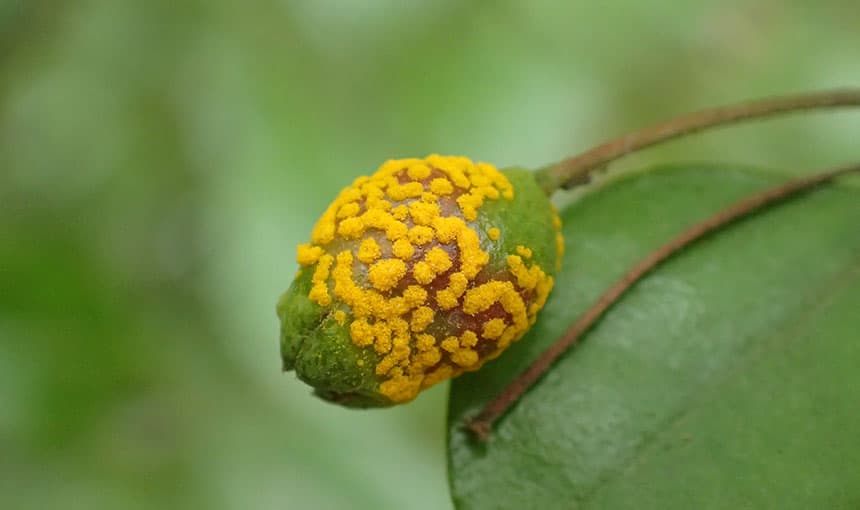The Myrtle Rust Programme (MRP) will investigate how myrtle rust is adapting to New Zealand conditions and its impact on our unique ecosystems.
Armed with improved understanding, the team will explore novel mitigation technologies and kaitiakitanga approaches to enhance ecosystem resilience. The programme will take an adaptive management approach to research – allowing the science to incorporate new knowledge as the disease develops.
Scientists will stay connected with those who are tackling myrtle rust in the field, in nurseries, at board tables and in local and central government programmes.
The Stakeholder Advisory Group for MRP met for the first time in March 2019 and is looking forward to playing an active part in organising and helping with the project research.
Members of the Advisory Group are concerned about the lack of recent media attention for myrtle rust and the possibility of the public thinking the disease isn’t a problem anymore.
MRP project lead and Manaaki Whenua – Landcare Research rust specialist Dr Mahajabeen Padamsee says they plan to turn that trend around.
“The Advisory Group will push the researchers to make information accessible and bring this together with observations and anecdotes from around the country, to build a better picture of the disease.”
Mahajabeen says they want to ensure this research is of value to everyone who is working on the myrtle rust problem and they’ll keep people informed through myrtlerust.org and other initiatives.
The group hopes this research will help inform fast responses to other plant pathogens that may arrive in New Zealand or become problematic with the changing climate.
MRP will be working in partnership with Scion, Plant and Food Research, Lincoln Agritech, University of Auckland, and a wide range of collaborators in New Zealand and overseas.
